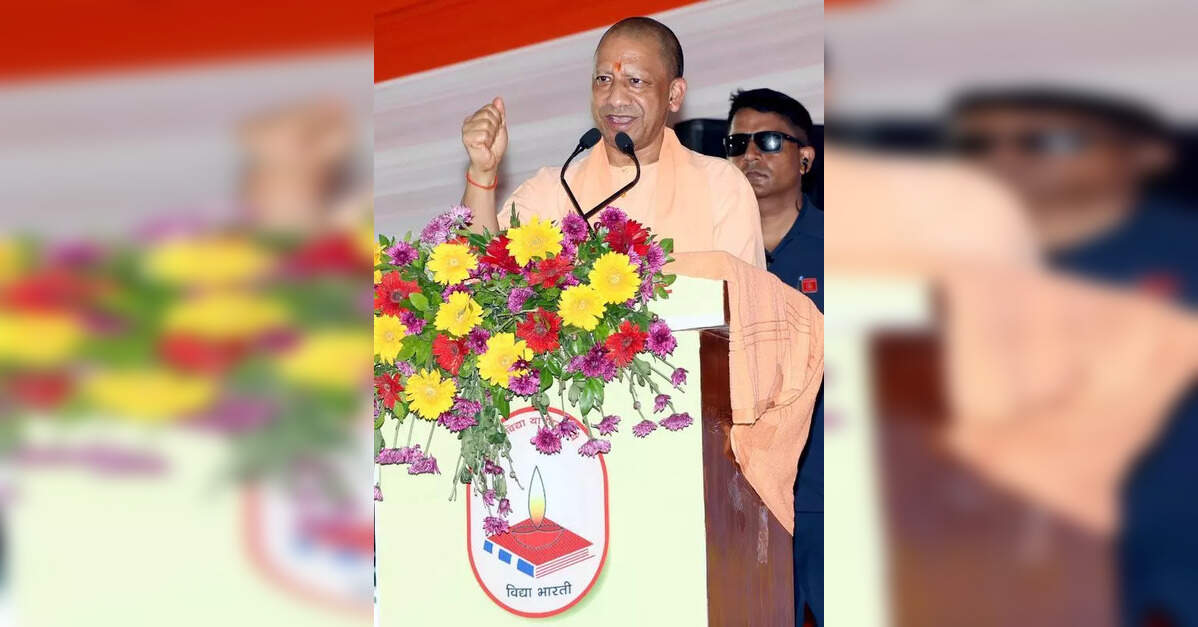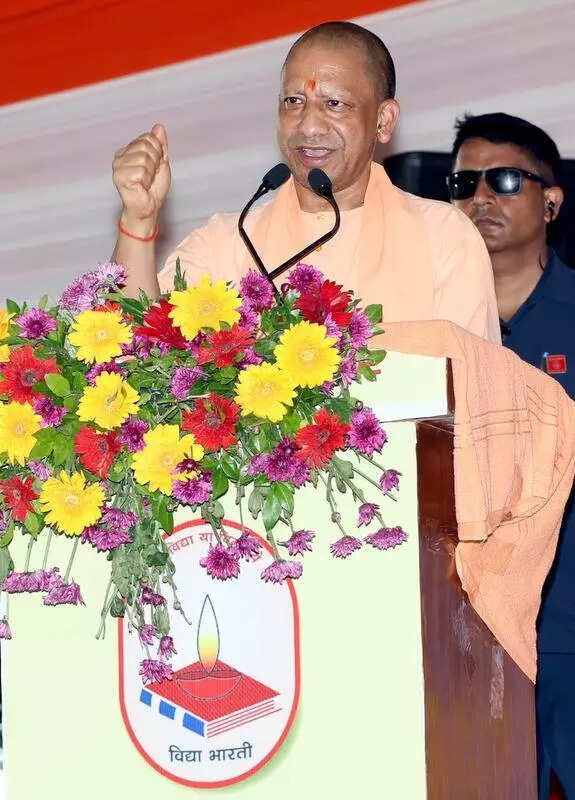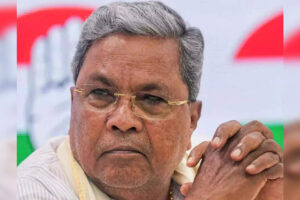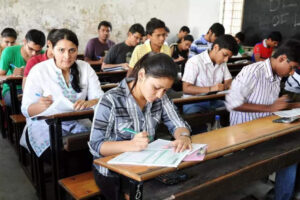
Education system must be rooted in Indian values: UP CM, ETEducation

Underlining the need for an education system rooted in Indian values, culture, and devotion, Chief Minister Yogi Adityanath on Tuesday said, “Education must instil values, respect for great personalities, love for the motherland, and a spirit of nationalism; without these, it becomes mis-education.”
During the foundation laying ceremony of Saraswati Shishu Mandir (SSM) in Basti, Yogi recalled post-independence, when govts failed to make significant efforts, Nanaji Deshmukh took the initiative from Gorakhpur to establish Saraswati Shishu Mandirs — institutions envisioned not merely to impart literacy but to ensure the holistic development of children.
“While the govt designs curricula, SSMs advance their mission relying on the dedication of volunteers inspired by ‘Bhartiyata’ (Indianness). From just five students in its first school at Pakkibagh, Gorakhpur, the network has now expanded to 12,000 schools, producing students who are taking leadership roles in society,” Yogi said.
Emphasising that education is the foundation of a capable, self-reliant, and powerful nation, the CM said prosperity rests first on education, followed by health, agriculture, water resources, skill development, employment, and environmentally balanced development. “When such campaigns advance with this intent, they serve not only the nation but also humanity,” he remarked.
Stressing the importance of planning in governance and institutions, the CM said, “Every system prepares yearly plans with short-, medium-, and long-term goals. Similarly, the govt’s annual budget outlines a vision for one, five, ten, and 25 years,” he said, urging citizens to adopt the Panch Pran and work towards building a developed India by 2047 as called by PM Narendra Modi during the Amrit Mahotsav of Independence.
Emphasising the importance of respecting India’s heritage, the CM recalled the sacrifices of Shyama Prasad Mukherjee and said, “In 1953, Dr Mukherjee strongly opposed the idea of two constitutions, two flags, and two prime ministers in one country. He advocated for the application of Indian law in Kashmir and even sacrificed his life for this cause.”
On the occasion, Yogi highlighted the construction of the Ram temple in Ayodhya after 500 years, calling it the fulfilment of another long-standing aspiration of the nation, which had been opposed by opposition parties. The CM also spoke about eradicating remnants of colonial-era slave mindset. “A mindset once held Indians as inferior and foreigners as superior. Over the past 11 years, this tendency has been curbed,” he said.
The CM highlighted India’s historical economic strength, noting that 400 years ago the country contributed 25% of global GDP, which fell to just 2% at independence due to exploitation. He added that Indians created prosperity through hard work, while foreigners amassed wealth by plunder. “Hindi and Sanskrit were sidelined, English was treated as the symbol of progress, and foreign figures were celebrated over our own great personalities,” he said.
He also highlighted PM Modi’s call for “Vocal for Local.” He urged people to prioritise “Made in India” products, especially those crafted by Indian artisans for daily use, and use them for gifting purposes so that profits directly benefit the artisans. This, he said, would drive India’s prosperity.
He highlighted that internal divisions historically weakened India. “People believed that an attack in another region or a fire in a distant neighbourhood was not their concern, but ignoring it allows the danger to spread and eventually affect everyone,” he said, stressing the need to end discrimination and counter divisive forces.
The CM also emphasised adapting technology to serve society and the nation. “During COVID, while the world struggled, India under PM Modi set a global example in pandemic management and simultaneously introduced the National Education Policy 2020,” he said. He also cautioned students about the use of AI, urging careful and responsible adoption.
The CM said that in just eight years, UP has emerged as India’s growth engine. Earlier, UP ranked among the bottom three states; today, it is in the top two and leads in the implementation of most schemes. He stated that the perception about UP has undergone a remarkable change. “In Lucknow alone, 6,000 youth received govt job appointment letters in just two days. Since 2017, 8.5 lakh youth have been appointed to govt positions, including many from Basti in the police, women and child development services, and other sectors,” he said, adding “narrow-minded govts cannot achieve great goals.”
The CM also spoke about the eradication of encephalitis, noting that today no parent has to worry about the disease in any season, thanks to govt efforts. He highlighted that when PM Modi launched the Swachh Bharat Abhiyan on October 2, 2014, many did not understand its impact, but the mission’s greatest achievement has been its role in controlling encephalitis. He emphasised that even a little govt attention can curb diseases and tackle mafias, and that ensuring safety for all paves the way for new investments.
Source link



